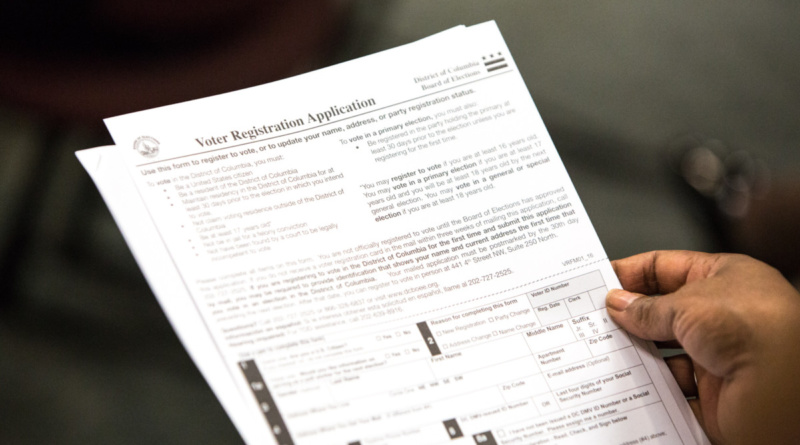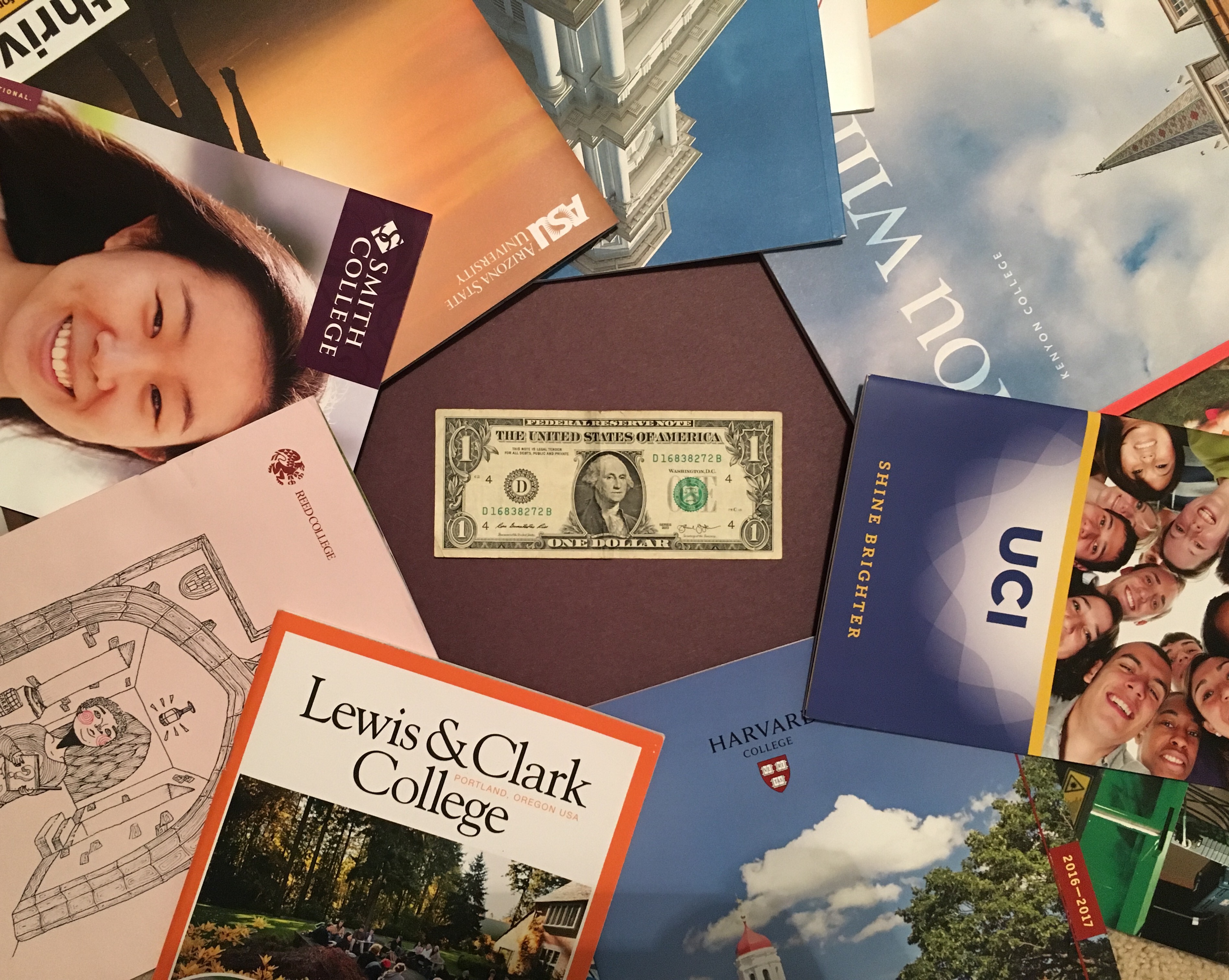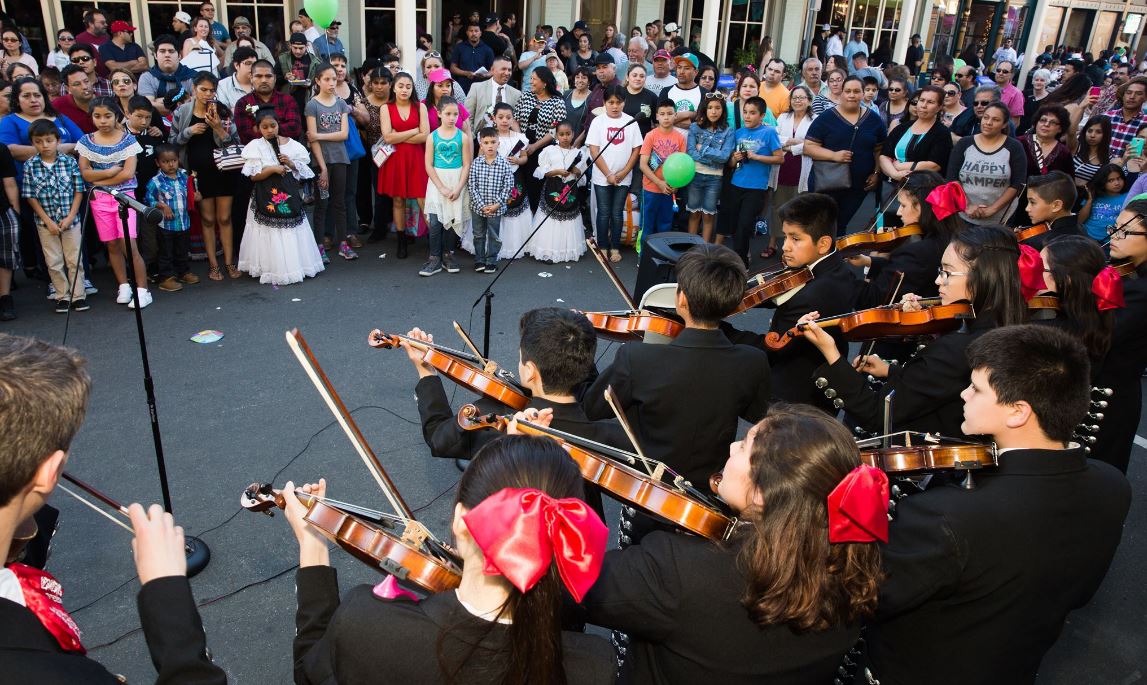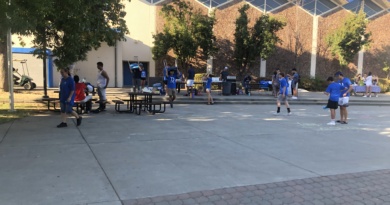Youth prepare for election
PHOTO: Voter turnout from individuals ages 18-29 increased from 20 percent in 2014 to 36 percent in 2018, according to the U.S. Census Bureau.
By Mattias RowenBale and Nousha Nusbaum,
BlueDevilHUB.com Staff–
The November election is fast approaching, and some Davis High students are eligible to vote for the first time.
Young people historically have low voter turnout but some officials hope that this will not be the case in this election.
Students who are not yet old enough to vote but wish to be involved in the election have found other ways to participate. Some Blue Devils under 18 are volunteering as poll workers, helping the organization Rock The Vote Davis, or finding unique ways to contribute.
Only 25.3 percent of eligible voters in Yolo County between the ages of 18-24 voted in the 2016 presidential election. The statewide average of eligible youth voters is 36.6 percent.
“I do believe that there's a disconnect that's happening in our population in terms of our high school students, really needing to help them understand the importance of elections, getting engaged, and doing the work,” said Jesse Salinas, registrar of voters in Yolo County.
Salinas also theorizes that college students getting ballots from their home counties may contribute to this discrepancy.
One such college student is UC Davis freshman Theo Tran, who feels he can make a more impactful vote in his home of Placer County. “We can not forget about our own local government institutions that have also been put into place to serve our community,” Tran said.
With the election fast approaching, some DHS students have taken it upon themselves to get their peers engaged.
Senior Mesara Jayalath is one of five DHS and UCD students who founded the Davis chapter of Rock The Vote in July. Rock The Vote Davis is dedicated to bringing voter information and resources to DHS seniors and UCD students, and has registered 10-15 new voters so far.
“Going forward, Rock The Vote Davis really wants to be a space where people can come for information, giving people volunteer opportunities to volunteer politically in the community, giving people a resource center if they need any help with what's on the ballot,” Jayalath said.
Senior Jaeli Williams has the same goals. She has been working with the Davis chapter of the League of Women Voters to make a video about the importance of voting. “I really do hope [the video] does make a change because it does give out a point and it encourages people to think about what their choices are,” Williams said.
While neither Jayalath nor Williams will be old enough to cast a vote this November, Jayalath is one of 16 students in Davis so far who are planning on volunteering at the polls.
Students aged 16 or above can sign up to volunteer at https://www.governmentjobs.com/careers/yolococa/jobs/845178/volunteer?pagetype=transferJobs, or pre-register/register to vote at https://registertovote.ca.gov/.
Sepp Sanchirico has been registered to vote since he got his driver license, and is planning on voting in person on Nov. 3. According to Salinas, younger voters are statistically more likely to vote in person than by mail.
In hopes of making voting more accessible to young people, Yolo County has placed voter assistance centers in centralized locations close to schools. Locations of these centers and local ballot boxes can be found at https://www.yoloelections.org/voting.
However, accessibility isn’t the only potential barrier this election. “I know the importance of this election which makes me want to vote, and I am kind of afraid of making the wrong decision,” said Elijah Withrow, a senior who is still not sure if he will be voting.
Even if young people don’t know who to vote for, Salinas thinks the most important part is just having a say. “We should all be registering. And we should all be voting, because our democracy needs us to do that. [...] I would love to see young folks encouraging people of all ages to register and vote and support our democracy. That could be a powerful, powerful thing,” Salinas said.
Teachers have a huge influence on their students, and different teachers have different approaches on how to educate their students on the importance of voting.
Social studies teacher Tracy Stapleton says he devotes class time to go over the election. “Specifically, getting to the details of what elections are, how they work, etc. would be a few days,” Stapleton said. “I encourage students to register but I do not take an active approach in getting them registered. I inform them of the county clerk’s office, website, etc.”
More young people ages 18-29 are voting in the U.S., with the 2018 midterm participation for this group going from 20 to 36 percent, a 79 percent increase from 2014.
“I think walking through the concrete steps and then having time to actually do it in class is important,” said Kristen Swanstrom, who teaches Economics and World Civilizations at DHS.
She often devotes time during class to the election, encouraging students to watch the debate and involve themselves in politics but not sharing her opinions.
“I value the idea of choice. I think young voters are so very important, but you guys are going to be living with the repercussions longer than those of us whose generations are in power or trying to get into power now,” Swanstrom said.
Swanstrom also counsels students to vote for what they feel informed about. “So what I try and stress to students is it’s okay not to vote for every little thing on the ballot,” she said.
DHS senior Madeline Senter will be 18 before the 2020 election but has always been interested in politics and has been looking forward to voting ever since the 2016 presidential election.
For Senter, encouragement of the importance of voting came more from her parents, politicians, social media, and activists, and less from her teachers and things she learned in their classes.
“I follow a lot of politicians and activists, who always are like, ‘go out and vote,’ so I don’t think it was necessarily something that came from school,” Senter said. “Although I’ve never been told ‘don’t vote’ by my teachers. My teachers this year definitely are telling us all to vote.”




